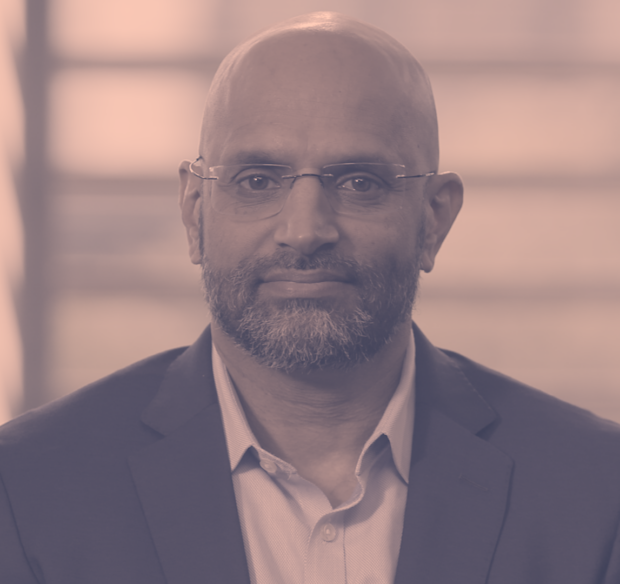Progress in Treating Advanced Gastric Cancer
- Advanced gastric cancer remains a formidable challenge, but the development of targeted therapies and immunotherapy offers new hope for improved outcomes.
- The integration of biomarker-driven therapies in the treatment algorithm for advanced gastric cancer is gradually shifting the landscape from traditional chemotherapy-based approaches to more targeted and personalized strategies.
- HER2 and PD-L1 testing are now routine in managing gastric cancer. Patients should also be tested for MSI-H and Claudin 18.2 to see if innovative new treatment approaches can be used.
Gastric cancer remains a significant global health challenge, ranking as the fifth most common cancer and the fourth leading cause of cancer-related deaths worldwide. Despite advancements in diagnosis and treatment, most patients are diagnosed at an advanced stage where curative options are limited, and systemic therapy becomes the mainstay of management.
“Metastatic gastric cancer is treated a little bit differently than localized gastric cancer. Whereas in localized gastric cancer, it’s a bit of a sprint to get through chemotherapy as well as surgery in order to prevent the disease from coming back and cure the patient … In advanced cancers, we focus on things a little bit differently. Now it’s a bit of a marathon,” Dr. Nicholas Hornstein, medical oncologist at Northwell Health in Manhattan, tells SurvivorNet Connect.
“We’re trying to sequence therapies in a way to provide patients for the best quality of life for as long as possible.”
Even with advances in treatment options, the median overall survival (OS) for metastatic gastric cancer (mGC) treated with systemic chemotherapy remains around 12 months.
Prior to initiating first-line systemic therapy for advanced gastric cancer, it is mandatory to determine the status of biomarkers, as the selection of the optimal treatment combination and sequence is contingent upon the result. The four established markers to guide first-line therapy are HER2, PD-L1, Claudin18.2, and MMR/MSI status.
According to NCCN guidelines, if metastatic gastric cancer is documented or suspected, it’s mandatory to perform HER2, PD-L1, and microsatellite testing (if not done previously).
The Role of Chemotherapy
Chemotherapy forms the backbone of systemic therapy for advanced gastric cancer. The traditional approach involves combinations of fluoropyrimidines (such as 5-FU or capecitabine) with platinum-based agents (cisplatin or oxaliplatin). The addition of taxanes, like docetaxel, as in the FLOT regimen (5-FU, Leucovorin, Oxaliplatin, and Docetaxel), has been shown to improve outcomes in patients eligible for triplet therapy, particularly in resectable cases.
In Western countries, regimens such as FOLFOX (fluorouracil and oxaliplatin) and CAPOX (capecitabine and oxaliplatin) are commonly used as first-line treatments for advanced gastric adenocarcinoma.
Chemotherapy for HER2-Positive Gastric Cancer
HER2 overexpression occurs in approximately 15-20% of gastric cancers. The addition of trastuzumab (brand name Herceptin) to a chemotherapy backbone has become the standard of care for patients with HER2-positive advanced gastric cancer.
This combination significantly improves survival, as demonstrated in the pivotal ToGA trial. Median overall survival was 13·8 months (95% CI 12–16) in those assigned to trastuzumab plus chemotherapy compared with 11·1 months (10–13) in those assigned to chemotherapy alone (hazard ratio 0·74; 95% CI 0·60–0·91; p=0·0046).
Based on these results, trastuzumab, in combination with cisplatin and a fluoropyrimidine, is approved by the FDA for the treatment of patients with metastatic HER2-positive gastric or GEJ adenocarcinomas who have not received prior treatment for metastatic disease.
Further studies are exploring the use of dual HER2 blockade with trastuzumab and pertuzumab, though toxicity remains a concern.
Dr. Hornstein also stresses that not everyone with HER2 overexpression can take this treatment approach.
“For patients with advanced or metastatic cancer … other things need to be taken into consideration, such as current heart function. Trastuzumab has some side effects that may impair the heart, so these are things that need to be taken into account before making a treatment decision to initiate anti-HER2 therapy.”
Emerging HER2 Therapies
Newer agents like trastuzumab deruxtecan (T-DXd – brand name Enhertu), an antibody-drug conjugate, have shown promising results in patients who have progressed on prior HER2-targeted therapy. Enhertu demonstrated robust efficacy in the DESTINY-Gastric01 trial, leading to FDA approval for HER2-positive gastric cancer previously treated with trastuzumab
- DESTINY-Gastric01 studied 188 adult patients with HER2+ advanced gastric cancer who had received ≥2 prior lines of treatment, including a trastuzumab-based regimen
- At the time of data cutoff, 49.2% of patients in the Enhertu arm (n=62/126) had died vs 62.9% in the irinotecan or paclitaxel arm (n=39/62)
- The pre-specified analysis was based on the full analysis set (n=125, all randomized patients who received at least one dose of ENHERTU); data shown are based on the intent-to-treat analysis set (n=126, all randomized patients in the ENHERTU arm)
- 53% reduction in risk of progression or death with Enhertu vs irinotecan or paclitaxel (HR=0.47; 95% CI: 0.31, 0.71)
PD-L1 Expression and Immune Checkpoint Inhibitors
PD-L1 (programmed death-ligand 1) expression is a crucial biomarker for predicting responses to immune checkpoint inhibitors (ICIs) like pembrolizumab (brand name Keytruda) and nivolumab (brand name Opdivo)
The combined positive score (CPS) is commonly used to assess PD-L1 levels in tumors. A CPS of ≥10 has been associated with a better response to immunotherapy in gastric cancer patients.
Key Studies on ICIs:
- KEYNOTE-061: This trial demonstrated that pembrolizumab improved OS compared to chemotherapy in patients with advanced gastric cancer who had previously been treated, particularly those with CPS ≥ 10.
- ATTRACTION-2: Conducted in Asia, this trial showed that nivolumab significantly prolonged survival in heavily pretreated patients, regardless of PD-L1 expression.
“There’s been some controversy recently for which patients qualify for these treatments, especially pembrolizumab, which was previously given to any patient receiving anti-HER2 therapy and now is only given to patients where their tumor cells express PD-L1. On some level, this is a somewhat complicated topic,” Dr. Hornstein added.
PD-1 inhibitors have been approved for the treatment of several cancers, including metastatic or unresectable gastric and gastroesophageal junction (GEJ) cancers. As Dr. Hornstein mentioned, initially, these drugs were approved for patients regardless of PD-L1 expression, a marker that indicates how likely a patient is to benefit from immune checkpoint inhibition.
Microsatellite Instability (MSI)
Microsatellite instability-high (MSI-H) status is observed in approximately 4% of gastric cancers and is associated with a better prognosis. MSI-H tumors exhibit a high mutational burden, making them more responsive to ICIs.
Impact on Immunotherapy:
- MSI-H tumors have shown remarkable responses to PD-1 inhibitors, with durable responses seen in multiple studies. For example, pembrolizumab is approved as a first-line therapy for MSI-H tumors, regardless of PD-L1 status.
- NEONIPIGA Study: This phase II study explored the use of ipilimumab and nivolumab in the neoadjuvant setting for dMMR/MSI-H gastric cancer, achieving high pCR rates. This suggests that immunotherapy alone could be a viable alternative to chemotherapy in this subset.
The integration of ICIs in treating MSI-H gastric cancer represents a paradigm shift, particularly for patients who may not benefit from traditional chemotherapy.
Claudin 18.2: A Novel Target
Claudin 18.2 is a tight junction protein selectively expressed in the gastric mucosa and upregulated in gastric cancers, particularly in diffuse-type and poorly differentiated tumor. It has recently emerged as a promising target for antibody-based therapies.
- Zolbetuximab (brand name Vyloy): This monoclonal antibody targets Claudin 18.2 and has shown promising results in early-phase trials. This is the first FDA-approved treatment that targets the biomarker claudin 18.2 in advanced gastric/GEJ cancer.
- When combined with standard chemotherapy, it improved progression-free survival (PFS) and OS in patients with Claudin 18.2-positive tumors.
- Median PFS was 10.6 months with Vyloy + mFOLFOX6 vs 8.7 months with mFOLFOX6 alone (HR=0.75 [95% CI: 0.60-0.94]; P=0.0066).
- Median OS was 18.2 months with VYLOY + mFOLFOX6 vs 15.5 months with mFOLFOX6 alone (HR=0.75 [95% CI: 0.60-0.94]; P=0.0053).
Treating Advanced Gastric Cancer: The Future
The integration of biomarker-driven therapies in the treatment algorithm for advanced gastric cancer is gradually shifting the landscape from traditional chemotherapy-based approaches to more targeted and personalized strategies.
- HER2 and PD-L1 testing are now routine in managing gastric cancer, guiding the use of trastuzumab and checkpoint inhibitors, respectively.
- MSI-H testing is critical for identifying patients who could benefit from immunotherapy alone, potentially avoiding the toxicities associated with chemotherapy.
- Claudin 18.2 represents a promising biomarker for targeted therapy, with ongoing research poised to expand its clinical utility.
Advanced gastric cancer remains a formidable challenge, but the development of targeted therapies and immunotherapy offers new hope for improved outcomes. The future of treatment lies in personalized approaches, with biomarker-driven strategies playing a central role. As ongoing clinical trials continue to refine these approaches, the goal is to extend survival and improve the quality of life for patients facing this difficult diagnosis





